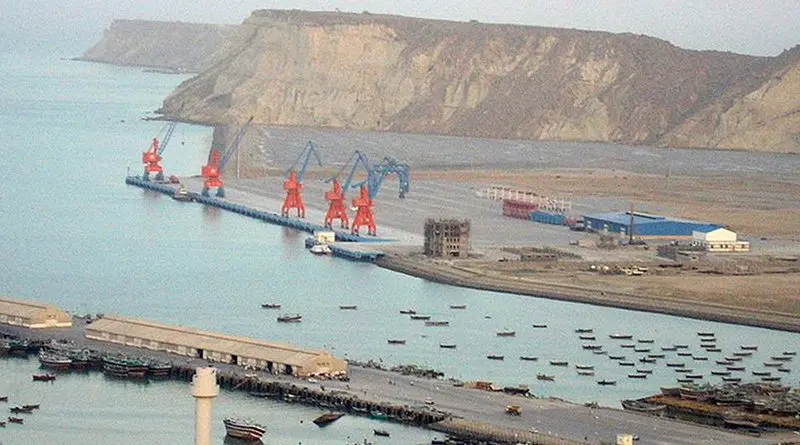Pakistan’s Gwadar Port: An Influence Multiplier Option For China – OpEd
The Gwadar Port project has an exceptionally important function, not only for Pakistan, but also for the rest of the region. Notably, the Chinese government has paid the bulk of the funds for the project execution. The state-owned Frontier Works Organization (FWO) of Pakistan got financial support of $360 million from China for the expansion and the up grading of the Karakoram Highway to smooth and speed transportation of the imported and exported goods through the Gwadar Port.
In the long-run, the Gwadar Port will serve China’s interests in the region. To meet the energy needs essentially required for the functioning of industries, China’s oil and energy supplies travel from the gulf region through a long route across the Strait of Malacca near the areas falling under the US influence. The current route of Chinese goods transportation takes more than 45 days to reach destined markets of Europe via the Middle East. Oil supplies reaching Chinese Eastern parts coast high require additional time to transport supplies to other Western parts of China. The oil supplies from Gulf countries would be transported through Gwadar and the Karakoram Highway with highly cheaper cost, safe transportation and in a very short time to the western parts of China. Likewise, the Chinese trade will also find an easier, shorter and secure route to Middle East bringing a profitability greater than ever before. Once the project is functional, China will make huge revenues because with the completion of CPEC, the Chinese shipments will be able to reach the same destination just within 10 days. The Gwadar Port will eventually create a nexus between China, Pakistan and the Central Asian countries with prospective revenues more than billions of dollars every year for all the countries.
The changing landscape of the region is prospectively abundant by putting the finances of various mega multinational companies such as Shell is working for setting up mega oil refinery. Moreover, the Arab Countries, stuffed with high revenues from the oil resources are also rendering their plans for the port city. The business groups from the Gulf countries particularly the business enterprises from the UAE are particularly interested in investing $90 billion for constructing high standard recreational hotels and industrial units.
The real-time efforts by the China and Pakistan collaborating for the actual usefulness of the Port are mainly due to the duty free trade and the development of the Gwadar as a Free Trade Zone. These policies appeal to investors around the globe, particularly the neighboring Gulf countries, whic moreover, also encourages the confidence of many multinational companies with their immense financial strength in this port that is already the focus of the whole world. The greater economic opportunities are particularly related with the factors that most of the Central Asian states such as Tajikistan, Uzbekistan and Turkmenistan along with Afghanistan all are landlocked countries and they all will depend mainly on the Gwadar Port for their trade and exports.
The Gwadar Port has capability to handle ships of 50,000-deadweight tonnage (DWT) which enables the importers to ship maximum cargo on a single ship. The liquid bulk and the containers as the main contributors for the Gwadar Port that prospectively throughput 321 to 345 million tons. The flow of financial resources mainly contributing to the Chinese economy through the fully functional Gwadar and the CPEC estimated at $40 billion per annum by the year 2020, however, this in turn would also add a total of $8 billion revenue per annum in Pakistan’s economic resources.
In addition, the narrow estimates of revenues through the exports from Gwadar Industrial Park would reach at $1.5 billion per annum. Given the need of high interface of Chinese and Pakistani business and investment, collaboration will immensely spur the economic activity by generating around 2 million additional employment opportunities for the people of both countries. The recent MoU signed between North South Transport Network (NSTN) Private Limited Pakistan and Gwadar International Terminal Limited (GITL) intends to setup three warehouses and storage of goods and containers with an initial level anticipation of each monthly volume capacity of 200-250 containers or 5,000-6,000 tons of cargo-total of 5% of China’s international cargo volume. The three transport and logistics subsectors could earn up to $6 billion per annum and attract creating 9,000 new enterprises and 400,000 additional jobs in the Port city.

